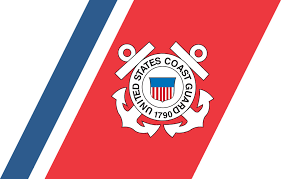As of 11:00 am today, the Carrollton Gauge reading is 8.99ft and expected to continue to fall. The attached MSIB provides official documentation of the below changes.
CARROLLTON GAUGE AT 9 FEET AND FALLING
MSIB_VOL_XIX_Issue_090_Carrollton_Gauge_at_9_and_Falling.pdf
This Marine Safety Information Bulletin supersedes Volume XIX, Issue 082 Carrollton Gauge at 8 Feet and Rising.
When the Carrollton Gauge reads 9 feet and falling, the following measures will be in effect:
- In accordance with 33 Code of Federal Regulations (CFR) 161.65, the Governor Nicholls Harbor Traffic Control Light, Gretna Harbor Traffic Control Light 97, and the Westwego Traffic Light 102 have been de-energized.
The harbor traffic control lights are located at: Governor Nicholls Light, mile marker (MM) 94.3 Above Head of Passes (AHP) Left Descending Bank (LDB) Lower Mississippi River (LMR) (LLNR 13855/34770); Gretna Light, MM 96.6, AHP, RDB, LMR (LLNR 13880/34795); and the Westwego Traffic Light, MM 101.4, AHP, RDB, LMR (LLNR13950).
- The Governor Nicholls Navigation Light 94 and the Gretna Navigation Light 97 are operating properly.
The following measures will no longer be in effect:
- 33 CFR 165.810 (b)(2) regulations describing high-water requirements for all vessels operating in the Lower Mississippi River below mile 233.9 AHP including South Pass and Southwest Pass.
- The Algiers Point Vessel Traffic Control lights are energized and vessel traffic is being regulated in the vicinity of Algiers Point. The Vessel Traffic Control lights are located at Governor Nicholls Light, 94.4 AHP, LBD, LMR (LLNR 13630/33185), Gretna Light, 97.6 AHP, RDB, LMR (LLNR 3655/33210) and the Westwego Repeater Light, 101.4 AHP, RDB, LMR (LLNR 13715).
- In accordance with 33 CFR 160.111 (c ), the COTP has determined that during periods of high water, unless moored to a shore side facility or mooring buoys, all deep draft vessels must have three means to hold position. An example would be two fully operational anchors and the propulsion system in standby. Should a vessel lose an anchor or become inoperable with no redundant capabilities available, such as aft anchors or two main engines, a third means of holding position could be via tug assist.
- All cargo transfers authorized in designated anchorages as noted in 33 CFR 110.195, as well as mid-stream cargo transfers, are required to submit for review a Notice of Midstream Transfer 48-hours prior to commencing transfer operations within the Captain of the Port New Orleans (COTP) zone.



